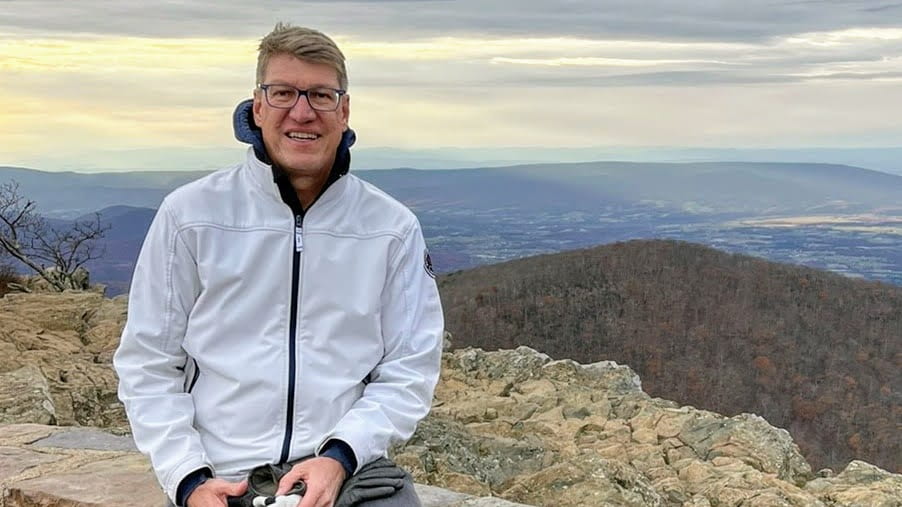Growing up in Germany as a young person with allergies, Ulrich Thienel, MD, PhD, Chief Executive Officer of ReAlta Life Sciences and member of Chemistry of Life Processes Institute’s (CLP) Executive Advisory Board, spent a lot of time in the doctor’s office. That experience of being a patient himself influenced his decision to go into medicine.
For six years, Thienel attended Justus Liebig University Giessen, one of Germany’s top research universities, where he earned his MD in internal medicine (1990) and PhD (1993) in ophthalmology. A desire to broaden his experience led to semesters in London, Switzerland, and China.
During his early years as a doctor, he encountered a patient with a fever whose condition puzzled everyone.
“Nobody could figure out what was wrong,” Thienel recalls. “Here, we were one of the largest hospitals in Southwest Germany and it really surprised me that people didn’t know what it was. It turned out to be adult-onset juvenile arthritis.”
Coming to America
In 1996, when a fellowship for rheumatology with Columbia University in the US became available, Thienel jumped at the opportunity.
“Seeing challenging situations that are unresolved ultimately led me to become a rheumatologist. These kinds of interactions continue to drive me,” says Thienel.
The transition to Columbia took some getting used to. Initially, Thienel struggled with English, as it was his second language, and found the work challenging.
“Ivy league universities are just incredible. I had to work very hard to keep up,” says Thienel.
One day, Ralph Blume, MD, a top rheumatologist at Columbia Medical Center who always arrived at the hospital at six o’clock in the morning each day, offered Thienel the opportunity to join him late Friday evening to see a patient.
“I was young and living downtown and not too happy about it at the time,” says Thienel, “but I reminded myself that he was making time for me to see something, so I said ‘yes’. I think that aspect of being open to possibilities and saying ‘yes’ to a mentor is what drove me later on in my career. It introduced me to the giving back principle.”
From Internist to Industry
Due to visa restrictions and the desire to remain in the US, Thienel made the difficult decision to leave medicine, after a decade of working as a physician, to pursue a career in industry. It would take him 17 years to become a US citizen. Along the way, his career took off.
Thienel worked for six years as director of clinical development at Johnson & Johnson, then four years as executive director of immunology at Bristol-Myers Squibb. Next, he became the head of clinical development for immunology at Takeda and was promoted quickly to head of immunology and respiratory, and then Therapeutic Area Leader overseeing everything from research development to commercialization.
“It was when I had taken on negotiating with our commercial team, they looked at me as a scientist and questioned my credibility,” admits Thienel. “So, I joined Kellogg [School of Management] and did my executive training in sales and marketing there.”
Thienel says the Kellogg program taught him to speak the same language and to use the same tools as the commercial team, so that when they came up with some assumptions and data, he could challenge or agree with their positions.
“Having the training and background of Germany, Columbia University and Kellogg counts,” says Thienel. “People couldn’t just dismiss me as a doctor. I learned how much a great education can carry you throughout your career.”
Making an Impact
During this time, Thienel was approached by CLP to join its Executive Advisory Board.
“I immediately said yes. I found it so intriguing and unique,” Thienel remarks. “CLP is different because it brings people together that otherwise wouldn’t talk. And once you meet the people, it’s pure bliss.”
In addition to providing valuable insights to Institute faculty on drug development and commercialization, in his role as a board member, Thienel advises graduate students in CLP’s predoctoral training program.
After several years in Chicago, Thienel accepted a new position in 2015 as chief development and medical officer for RRD International, a small east coast biotech. Three years later, he became chief medical officer for Finch Therapeutics Group based in Massachusetts. In that role he provided strategic advice to smaller companies. One of them was ReAlta Life Sciences, Inc. Two years later, Thienel became a board member of the company. Then, in 2019, the company’s founders asked him to become its chief executive officer.
“It was always other people who felt I would be qualified for a position that led me to my next role,” explains Thienel. “In these situations, the only answer is ‘yes’.
ReAlta is a clinical stage rare disease company whose lead indication is hypoxic ischemic encephalopathy. The condition is created in newborns during birth when the brain doesn’t receive enough oxygen or blood flow for a period of time, such as when the umbilical cord is wrapped around the neck. Depending on the level of severity, a single event can lead to cerebral palsy, developmental delays, and lifelong learning impairment.
“Part of what you have in a hypoxic event is that you trigger activation of an inflammatory cascade that begins as a snowball and turns into an avalanche.” says Thienel. “Our drug, which can be given as early as possible, would dampen this inflammatory response and the worsening of disease.”
The other two indications for their lead compound are severe asthma and hematology platelet refractoriness. Each market, according to Thienel, has blockbuster potential—$1 billion in the US alone.
“Listening and developing good mentorship relationships have assisted me in becoming who I am right now, a CEO of a biotech company,” says Thienel. “What I realized is, people do this because they believe in you, and they want to ensure you get better. It’s a way of giving back. I benefit from this throughout my career and want to pay it forward to the next generation.”
By Lisa La Vallee
